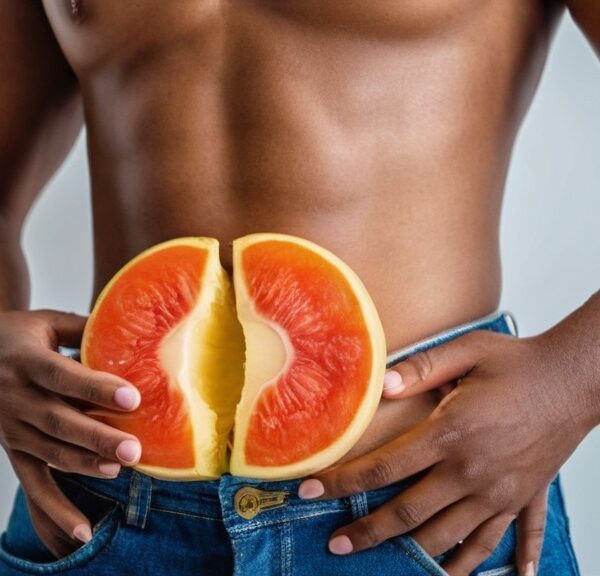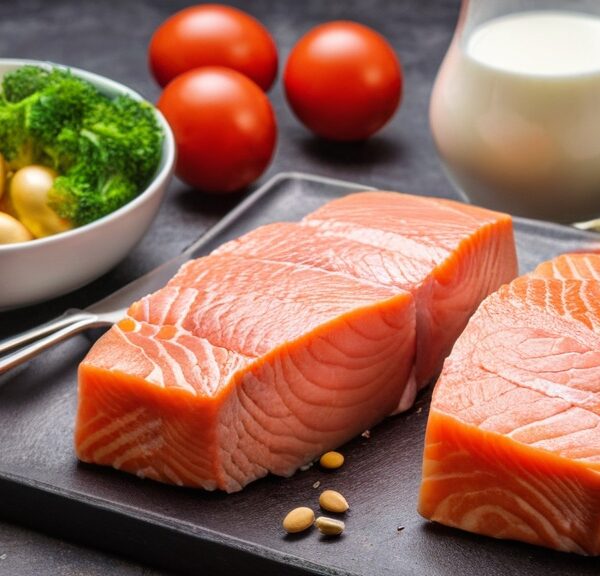Omega-3 fatty acids play a crucial role in recovery after physical exertion. They help reduce muscle soreness and improve overall recovery time. Athletes and active individuals often seek ways to enhance their recovery, and omega-3s offer a natural solution.
These essential fats come primarily from fish, flaxseeds, and walnuts. Incorporating these foods into your diet can significantly impact your recovery process. Omega-3s support cellular repair and promote muscle growth, making them vital for anyone engaged in regular physical activity.
Key Takeaways
- Omega-3s play a crucial role in the recovery process by reducing inflammation and supporting joint health and mobility.
- Curcumin is a powerful compound that aids in reducing inflammation and supports joint health and mobility, making it an important component of recovery.
- Antioxidants are beneficial for recovery as they help fight oxidative stress and support overall health and well-being.
- Omega-3s aid in reducing inflammation, which is essential for the recovery process and overall health.
- Curcumin supports joint health and mobility, making it a valuable addition to a recovery plan.
Understanding the Role of Curcumin in the Recovery Process
Curcumin, the active compound in turmeric, has gained attention for its anti-inflammatory properties. It helps combat inflammation, which is crucial for recovery after intense workouts. By reducing inflammation, curcumin can enhance the healing process and improve overall performance.
Research shows that curcumin may also support joint health. This is particularly beneficial for athletes who put stress on their joints during training. Including curcumin in your diet can lead to better mobility and less discomfort during recovery.
Exploring the Benefits of Antioxidants for Recovery

Antioxidants play a vital role in protecting the body from oxidative stress. Intense exercise can lead to increased free radicals, which can damage cells. Antioxidants neutralize these free radicals, promoting faster recovery and better overall health.
Fruits and vegetables are rich sources of antioxidants. Berries, leafy greens, and nuts can help replenish your body after strenuous activity. Including these foods in your diet can enhance your recovery and support long-term health.
How Omega-3s Aid in Reducing Inflammation
Omega-3 fatty acids are well-known for their anti-inflammatory effects. They help lower levels of inflammatory markers in the body, which can speed up recovery. This reduction in inflammation can lead to less pain and discomfort after workouts.
Studies indicate that omega-3s may also improve joint function. This is particularly important for athletes who rely on their joints for performance. By incorporating omega-3s into your diet, you can support your body’s natural healing processes.
Curcumin’s Role in Supporting Joint Health and Mobility
Curcumin offers significant benefits for joint health and mobility. Its anti-inflammatory properties help alleviate joint pain and stiffness. This is especially beneficial for those recovering from injuries or intense workouts.
Regular consumption of curcumin can enhance flexibility and range of motion. This allows athletes to train more effectively without discomfort. By supporting joint health, curcumin plays a vital role in overall recovery.
The Power of Antioxidants in Fighting Oxidative Stress

Antioxidants are essential for combating oxidative stress caused by exercise. They protect cells from damage and promote faster recovery. By neutralizing free radicals, antioxidants help maintain overall health and well-being.
Incorporating a variety of antioxidant-rich foods into your diet can enhance recovery. Foods like berries, dark chocolate, and green tea provide powerful antioxidants. These foods not only aid recovery but also contribute to long-term health benefits.
Omega-3s and Curcumin: A Dynamic Duo for Recovery
Combining omega-3s and curcumin can create a powerful synergy for recovery. Together, they offer enhanced anti-inflammatory effects that support healing. This combination can lead to improved muscle recovery and reduced soreness.
Many athletes find that using both omega-3s and curcumin in their diets accelerates their recovery process. This dynamic duo works together to promote overall health and well-being. Incorporating both into your routine can yield significant benefits.
Incorporating Antioxidant-Rich Foods into Your Recovery Diet
To maximize recovery, focus on incorporating antioxidant-rich foods into your meals. Berries, nuts, and leafy greens should be staples in your diet. These foods not only provide antioxidants but also essential vitamins and minerals.
Smoothies are an excellent way to pack in antioxidants post-workout. Blend spinach, berries, and a scoop of protein powder for a nutritious recovery drink. Experimenting with different recipes can keep your diet exciting while supporting your recovery goals.
The Science Behind Omega-3s, Curcumin, and Antioxidants for Recovery
Research supports the benefits of omega-3s, curcumin, and antioxidants for recovery. Studies show that omega-3s reduce inflammation and improve muscle repair. Curcumin has demonstrated its ability to alleviate joint pain and enhance mobility.
Antioxidants play a critical role in protecting against oxidative stress during recovery. Together, these nutrients create a comprehensive approach to enhancing recovery after physical activity. Understanding the science behind them can motivate you to incorporate them into your routine.
Tips for Choosing the Right Omega-3 and Curcumin Supplements
When selecting omega-3 supplements, look for high-quality sources like fish oil or algae oil. Ensure they contain EPA and DHA, the most beneficial forms of omega-3s. Check for third-party testing to guarantee purity and potency.
For curcumin supplements, choose those with enhanced bioavailability. Curcumin alone has low absorption rates, so look for formulations that include black pepper extract (piperine). This combination increases absorption and maximizes benefits.
Creating a Recovery Plan with Omega-3s, Curcumin, and Antioxidants
Developing a comprehensive recovery plan involves incorporating omega-3s, curcumin, and antioxidants into your diet. Start by assessing your current eating habits and identifying areas for improvement. Gradually introduce foods rich in these nutrients to support your recovery goals.
Consider meal prepping to ensure you have healthy options readily available post-workout. Include a variety of sources for omega-3s, curcumin, and antioxidants in your meals. This balanced approach will enhance your recovery process and promote long-term health benefits.
In conclusion, prioritizing omega-3s, curcumin, and antioxidants can significantly improve your recovery process. By understanding their roles and incorporating them into your diet, you can enhance performance and overall well-being. Embrace these powerful nutrients as part of your journey toward optimal health and recovery.
FAQs
What are Omega-3s, Curcumin, and Antioxidants?
Omega-3s are a type of fatty acid that are considered essential for good health. They are found in certain foods, such as fish and flaxseeds, and are also available as dietary supplements. Curcumin is a compound found in the spice turmeric, known for its anti-inflammatory and antioxidant properties. Antioxidants are substances that can prevent or slow damage to cells caused by free radicals, which are harmful molecules produced by the body as a reaction to environmental and other pressures.
How do Omega-3s, Curcumin, and Antioxidants contribute to recovery?
Omega-3s, curcumin, and antioxidants have been shown to have anti-inflammatory properties, which can help reduce inflammation and promote recovery after exercise or injury. They also have antioxidant properties, which can help protect cells from damage and support overall health.
What are the food sources of Omega-3s, Curcumin, and Antioxidants?
Omega-3s are found in fatty fish (such as salmon, mackerel, and sardines), flaxseeds, chia seeds, and walnuts. Curcumin is found in turmeric, which is commonly used as a spice in curry dishes. Antioxidants are found in a wide variety of fruits and vegetables, as well as in nuts, seeds, and certain beverages such as green tea and red wine.
Are there any potential side effects or risks associated with Omega-3s, Curcumin, and Antioxidants?
Omega-3 supplements can have blood-thinning effects, so individuals taking blood thinners or with bleeding disorders should consult a healthcare professional before taking them. Curcumin supplements may interact with certain medications, such as blood thinners and diabetes medications. Antioxidants are generally safe when consumed from food sources, but high doses of antioxidant supplements may have adverse effects in some individuals.
Can Omega-3s, Curcumin, and Antioxidants be taken together as supplements?
Yes, Omega-3s, curcumin, and antioxidants can be taken together as supplements. However, it is important to consult with a healthcare professional before starting any new supplement regimen, especially if you have any underlying health conditions or are taking medications.



